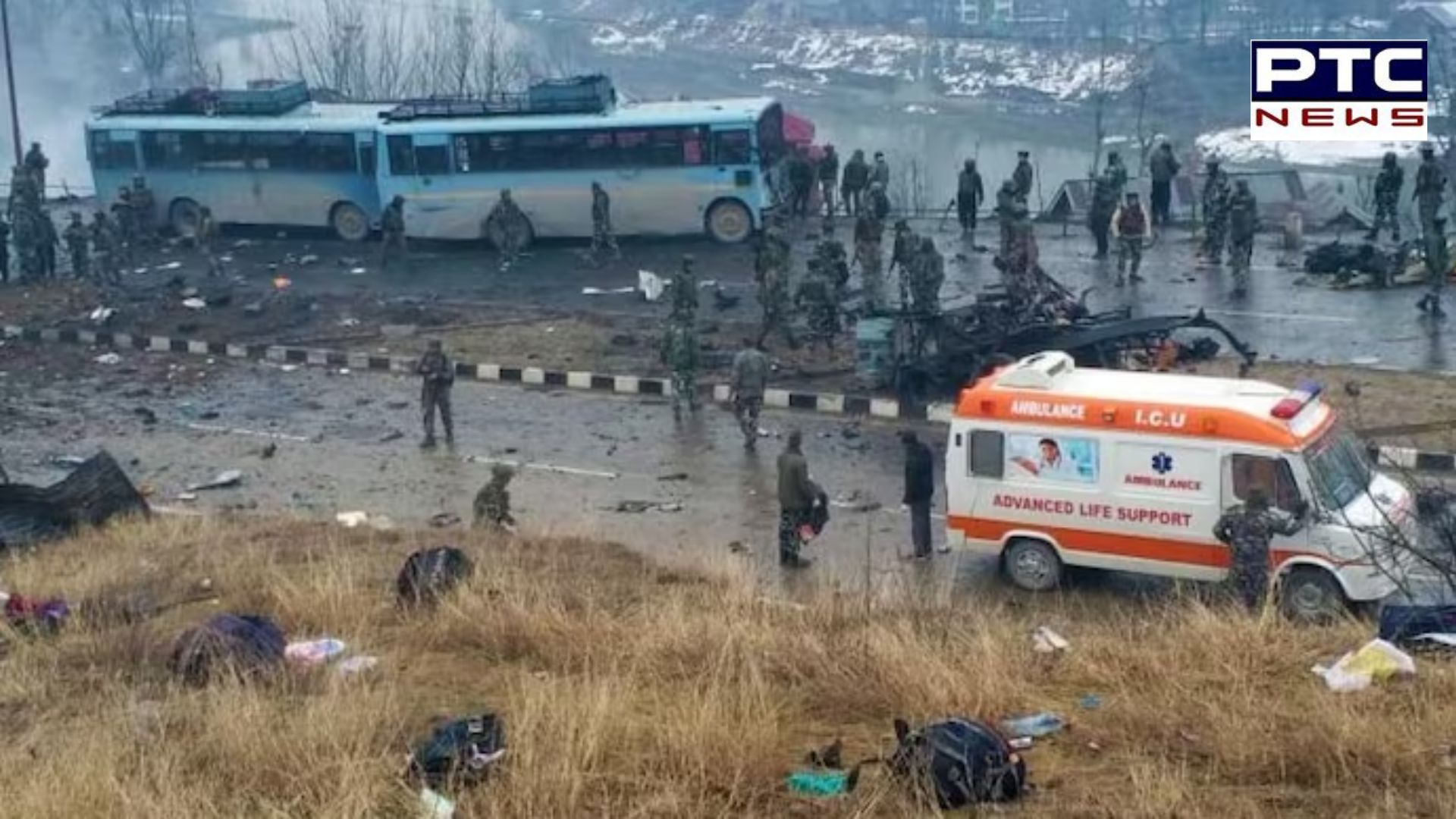

Pulwama Attack Revenge: Exploring India’s monumental retaliation story
PTC News Desk: In response to the devastating Pulwama attack on February 14, 2019, where 44 CRPF personnel lost their lives in a suicide bombing, India executed one of its most significant retaliatory actions against terrorism. Here's all you need to know about India's biggest revenge story:
1. Operation Bandar (Monkey): The Balakot airstrike, conducted by the Indian Air Force (IAF) on February 26, 2019, was shrouded in secrecy. Codenamed 'Operation Bandar,' the strike targeted the Balakot-based Jaish-e-Mohammad (JeM) terror camp in the Khyber Pakhtunkhwa province of Pakistan. This camp served as a crucial training center for JeM and other terrorist organizations.
2. Pulwama Attack: On Valentine's Day, February 14, 2019, while the world celebrated love, India faced one of its deadliest terrorist attacks. A suicide bomber affiliated with Jaish-e-Mohammad targeted a convoy of 78 vehicles carrying over 2,500 CRPF personnel on the Jammu Srinagar National Highway in Pulwama, Jammu and Kashmir. The bomber rammed an explosive-laden vehicle into a bus, resulting in the tragic loss of 44 CRPF jawans.
3. Avenging the Sacrifice: In the same year as the Pulwama attack, India took decisive action to avenge the martyrs by striking terrorist targets on Pakistani soil. The airstrikes targeted several terror camps, including the Balakot camp, dealing a significant blow to terrorist infrastructure across the border.
The Balakot airstrike stands as a testament to India's resolve in combating terrorism and sending a strong message to those who seek to harm its citizens. It marks a crucial chapter in the nation's fight against terrorism and its commitment to safeguarding its security forces and civilians alike.
Also Read: Punjab farmers heading to Delhi; borders sealed; Centre-farmer dialogue scheduled today
Also Read: Why farmers' protest has cops, govts on toes, once again? Key Points
Following the events of February 14, 2019, tensions escalated between India and Pakistan. India responded by lodging a formal protest and summoning Pakistan's top diplomat.
In retaliation for the Pulwama attack, Prime Minister Narendra Modi emphasized that India's security forces were given the authority to select the location, timing, and method of their response.
February 26, 2019 marked a significant turning point in India's response to the Pulwama attack, as the Indian Air Force (IAF) executed a surgical strike on terror camps in Balakot, Pakistan. With 12 days having passed since the devastating attack on CRPF jawans in Pulwama, India's retaliation had been eagerly awaited. The morning of February 26 brought news of the IAF's surgical strikes on the terror camps in Balakot, Pakistan.
This operation marked India's first cross-border air strike in over five decades, signaling a robust response to terrorist threats emanating from across the border. The meticulously planned strike saw twelve Mirage 2000 fighter jets taking off from multiple air bases. These jets targeted the training camps of Jaish-e-Mohammad (JeM) and Lashkar-e-Taiba (LeT), completely decimating them with the use of around 1,000 kg bombs. The IAF pilots deployed five Spice 2000 bombs, with four hitting the rooftops of the buildings where the terrorists were believed to be resting.
Executed around 3:30 am, the surgical strike was swift and precise, with the jets returning to their bases within 20 minutes of the operation's commencement. The success of the operation was bolstered by a comprehensive support system. The indigenous Airborne Early Warning and Control systems (AEW&C) plane, Netra, played a crucial role in overseeing the operation. Additionally, Heron drones were deployed to monitor any potential action from Pakistan.
In preparation for contingencies, mid-air refuelers were also stationed, ensuring the uninterrupted execution of the mission. Furthermore, Garud, the IAF's elite commando unit, remained on standby, ready to respond to any emergency situation that may arise during the operation.
Also Read: 'Delhi Chalo' protest: Centre, farmers' meet ends inconclusively
(Inputs from agencies)
-
